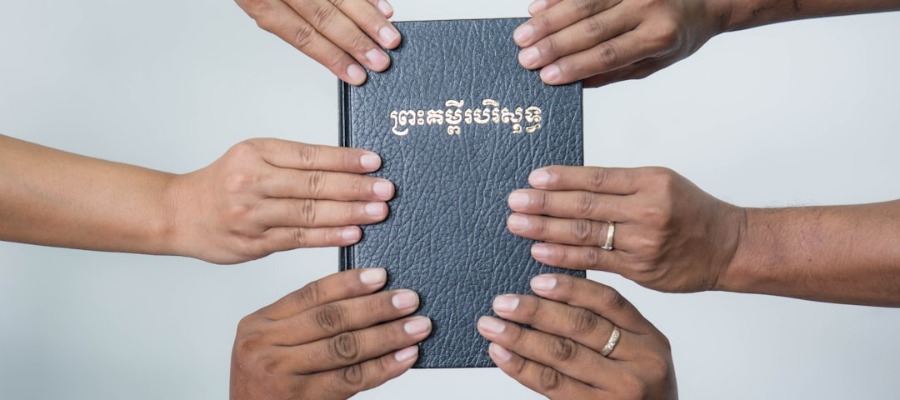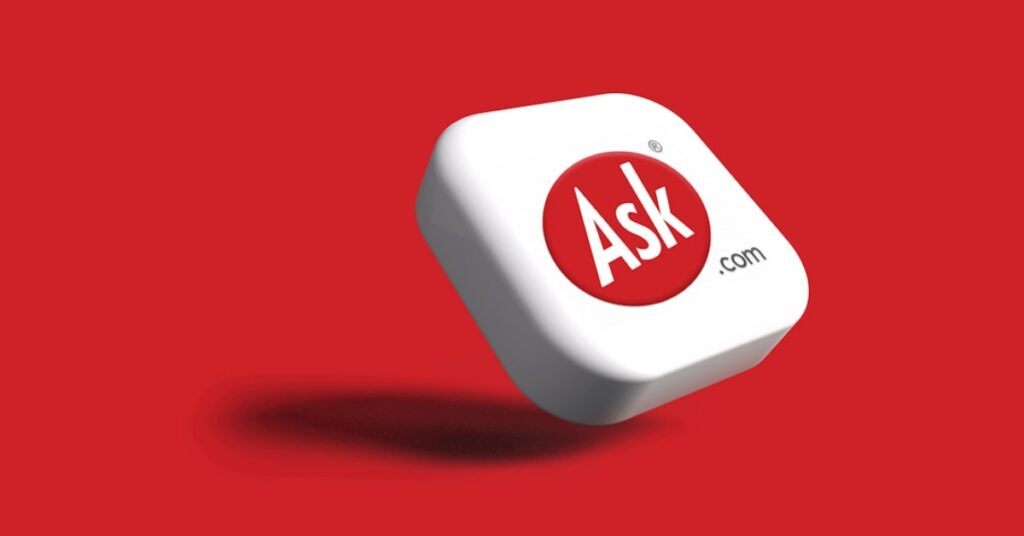
The Impenetrable Barrier
Panyim slammed his textbook shut with a sigh that rattled the windows of their small mudbrick house. The orange glow of the setting sun cast long shadows across the room, highlighting the frustration etched on his face. Across from him, Nyakor looked up from her own studies, concern creasing her brow.
“What troubles you, Panyim?” she asked, her voice as warm and comforting as the worn shawl draped across her shoulders.
Panyim gestured helplessly at the offending book. “These negative numbers, Nyakor,” he grumbled. “They’re like some kind of secret code everyone else understands but me. It feels like there’s an invisible wall in my head, blocking me from getting it.”
Nyakor placed her book aside and scooted closer on the woven mat that served as their makeshift living room floor. “A wall, huh?” she said, her voice laced with amusement. “An interesting metaphor, Panyim. But walls aren’t always made of brick and mortar, you know.”
Panyim tilted his head, a spark of curiosity flickering in his eyes. “What do you mean?”
Nyakor leaned in conspiratorially. “Sometimes,” she explained, her voice dropping to a whisper, “the biggest walls we face are built from our own thoughts and beliefs. These beliefs, these limiting beliefs, can hold us back without us even realizing it.”
Panyim frowned. “Limiting beliefs? Like, what? Thinking I’m just bad at math?”
Nyakor chuckled softly. “Exactly, Panyim. It’s the voice inside your head that tells you ‘you can’t do this,’ or ‘you’re not smart enough.’ These voices can be so loud sometimes that they drown out everything else.”
Panyim pondered this for a moment, a flicker of recognition dawning in his eyes. “Like when I wanted to try out for the debate team last year,” he admitted sheepishly. “There was this voice that kept saying things like ‘you’ll just stutter and mess up in front of everyone’ or ‘they’ll pick someone better anyway.'”
Nyakor nodded sympathetically. “See? That’s a limiting belief in action. It kept you from even trying, even though you might have been amazing!”
Panyim kicked at the dirt floor with a frustrated sigh. “So, what do we do about these walls? How do we tear them down?”
Nyakor’s eyes twinkled with a mischievous glint. “That, Panyim, is a question we’ll explore together. But first,” she said, tapping his nose playfully, “let’s see if we can identify the voice behind that wall in your head when it comes to math.”
Panyim grinned, a newfound determination replacing his earlier frustration. Together, they embarked on a journey of self-discovery, determined to not only conquer negative numbers but also dismantle the wall of limiting beliefs that threatened to hold Panyim back.
Unearthing the Bricks of Doubt
The following evening, under the warm glow of a kerosene lamp that sputtered and cast flickering shadows on the mudbrick walls, Nyakor led Panyim on a quest unlike any they’d embarked on before. They weren’t venturing into the savanna to search for rare birds or exploring the bustling marketplace for hidden treasures. This time, their expedition was inward, a journey into the labyrinthine world of Panyim’s own thoughts.
“Alright, Panyim,” Nyakor began, her voice a gentle guide in the dim light. “Close your eyes and take a deep breath. Imagine yourself standing in front of your science fair project.”
Panyim squeezed his eyes shut, picturing the empty table reserved for his yet-to-be-created masterpiece. A knot of anxiety tightened in his stomach as the voice Nyakor had mentioned began to whisper in his ear.
“Science fair, huh?” it sneered. “Everyone else will have these elaborate experiments, with flashing lights and bubbling concoctions. What are you even going to come up with? Just some sticks and mud like a little kid?”
Panyim winced, the voice’s words echoing his own self-doubt. He opened his eyes and met Nyakor’s gaze, a mixture of frustration and confusion swirling within him.
“There it is,” Nyakor said, her voice soft but firm. “Can you identify that voice, Panyim?”
“It’s the voice I always hear,” he mumbled, kicking at a stray pebble on the floor. “It tells me my ideas are stupid and everyone else is better.”
Nyakor nodded. “That’s the limiting belief holding you back. But listen closely, Panyim. Is there anything else the voice says?”
Panyim closed his eyes again, focusing on the taunting voice. This time, he caught something new amidst the negativity.
“It also says ‘failing is the worst thing that can happen,'” he reported, a hint of defiance creeping into his voice.
Nyakor’s lips curved into a knowing smile. “Excellent! Now, tell that voice something back.”
Panyim hesitated, unsure of how to counter the negativity that had plagued him for so long. But Nyakor’s encouraging gaze spurred him on.
“I tell it that failing isn’t the end,” he said, his voice gaining strength with each word. “It’s just a chance to learn and do better next time. And besides, everyone else at the fair probably feels a little nervous about their projects too.”
A glimmer of pride flickered in Nyakor’s eyes. “See, Panyim? You’re already challenging that limiting belief. Now, let’s dig a little deeper. What does the voice say about your ideas specifically?”
Panyim closed his eyes once more, a wave of self-consciousness washing over him.
“It says they’re not creative enough, not innovative enough,” he mumbled, barely audible.
Nyakor reached out and placed a comforting hand on his shoulder. “But have you even started brainstorming yet, Panyim? How do you know your ideas won’t be amazing if you don’t give them a chance?”
Panyim pondered this, a seed of hope taking root in his mind. “Maybe you’re right,” he conceded. “Maybe I should at least try to come up with some ideas before I judge them.”
Nyakor squeezed his shoulder gently. “Exactly! Now, open your eyes and let’s brainstorm together. Think about the things you’re good at, the things you’re passionate about. Maybe there’s a way to combine those with science for a truly unique project.”
With a newfound determination burning in his chest, Panyim opened his eyes, a spark of excitement replacing the earlier doubt. The journey to dismantle the wall of limiting beliefs had just begun, but for the first time, Panyim felt empowered to take a step towards the other side.
Chipping Away at the Wall, Brick by Brick
Weeks bled into one another, marked by late nights spent hunched over books and countless trips to the local library. Panyim’s initial spark of enthusiasm had morphed into a determined focus. The once-empty table at the science fair was no longer a source of anxiety, but a canvas waiting to be brought to life.
One particularly humid afternoon, Panyim flopped down on the woven mat beside Nyakor, a grimace etched on his face. “I’m stuck,” he groaned, throwing his hands up in defeat.
Nyakor looked up from her book, concern etched on her brow. “Stuck on what, Panyim?”
“Everything!” he exclaimed, throwing his hands up in exasperation. “I’ve researched water purification methods until my head spins, but none of them seem to fit the materials we have readily available. Everyone else will have these fancy store-bought kits, and I’ll be here with some sticks and mud.”
The familiar voice of doubt echoed in his head, its taunts dripping with negativity. “See, Panyim? You knew you wouldn’t come up with anything good.”
But this time, Panyim recognized the voice for what it was: a limiting belief trying to hold him back. He shut his eyes and took a deep breath, the calming techniques Nyakor had taught him working their magic.
“No,” he countered the voice firmly, a newfound resolve in his tone. “This just means I have to be more creative. Maybe there’s a way to use local materials in a unique way.”
Nyakor beamed, her smile lighting up the dimly lit room. “That’s the spirit, Panyim! Remember, limitations can sometimes breed innovation. Think about the things we have around us. What natural resources are readily available?”
Panyim closed his eyes, picturing the vast savanna surrounding their village, the life-giving Nile River snaking its way through the landscape, and the towering clay pots used to store water. An idea, small and nascent, began to form in his mind.
“Clay,” he blurted out, his eyes snapping open. “We could use clay to filter the water!”
Nyakor’s smile widened. “Excellent! Now, how can we make that work?”
The following days were a whirlwind of activity. Panyim and Nyakor scoured the library for information on clay filtration, their initial skepticism giving way to a growing sense of possibility. They experimented with different clay mixtures, molding them into various shapes, their laughter echoing through the quiet evenings as they tested their prototypes on muddy water collected from a nearby stream.
There were setbacks, of course. Some prototypes crumbled under the pressure of the water, others failed to filter out the impurities effectively. But with each failure, Panyim learned and adapted, the voice of doubt growing fainter with every successful iteration.
One particularly frustrating evening, after a prototype had disintegrated spectacularly, Panyim slumped back on the mat, his shoulders slumped in defeat. “Maybe this was a bad idea,” he mumbled.
Nyakor, ever the source of encouragement, placed a hand on his arm. “Look how far you’ve come, Panyim,” she said, gesturing to the discarded prototypes scattered around the floor. “Each one of these represents a step forward, a lesson learned. Don’t let a setback discourage you.”
Panyim looked at the remnants of his efforts, a newfound determination hardening his gaze. “You’re right,” he said, picking himself up. “We’re close. We just need to refine the design a little more.”
And refine they did. Over the next few days, fueled by their shared determination, Panyim and Nyakor meticulously tweaked their design. They discovered that adding a layer of sand beneath the clay improved filtration, and by shaping the clay into a specific form, they could increase the water flow.
Finally, the day of the science fair arrived. Panyim stood proudly beside his creation, a simple yet ingenious water purification system made from readily available materials. He presented his project with a newfound confidence, his voice ringing clear as he explained the science behind his design.
The judges were impressed by Panyim’s resourcefulness and ingenuity. While he didn’t win first place, the look of pride in Nyakor’s eyes and the respect he earned from his peers were far more valuable prizes. He had not only built a science project, he had chipped away at the wall of limiting beliefs, brick by brick, proving to himself that with hard work and perseverance, he could achieve anything he set his mind to.
Breaking Through the Wall: A Celebration of Possibility
The annual science fair buzzed with activity. Colorful displays lined the schoolyard, each one a testament to the students’ creativity and dedication. Panyim, his heart pounding a steady rhythm in his chest, stood beside his very own project – a clay water purification system he’d christened “The Nile’s Embrace.”
Nyakor squeezed his hand reassuringly. “You ready, Panyim?” she asked, her eyes sparkling with pride.
Panyim took a deep breath, the familiar voice of doubt attempting to whisper its negativity. “Almost,” he countered, a newfound resolve hardening his voice. “There’s just one thing I need to do first.”
He spotted Mama Sarah, his wise and kind grandmother, browsing the displays. Weaving his way through the crowd, he reached her side.
“Mama Sarah,” he began, a hint of nervousness creeping into his voice. “Can I show you something?”
Mama Sarah’s eyes softened as she saw Panyim’s earnest expression. “Of course, child,” she replied, following him back to his project.
Panyim explained the science behind his invention, his voice gaining confidence with each word. He demonstrated how the clay filter purified muddy water from the Nile, transforming it into clean, drinkable liquid.
Mama Sarah listened intently, her face etched with a mixture of curiosity and wonder. Finally, a smile broke out across her face.
“Panyim,” she said, her voice filled with warmth, “this is brilliant! Not only have you made something useful, but you’ve used materials we know and understand. This could be a game-changer for our village.”
Panyim’s chest swelled with pride. “Really? You think so?”
Mama Sarah nodded vigorously. “Absolutely! Imagine how many families could benefit from clean drinking water, especially during the dry season. You’ve tackled a real problem, Panyim, and that’s what science is all about.”
Her words resonated deeply with Panyim. He had finally realized that science wasn’t just about complex equations and intimidating textbooks. It was about using knowledge to solve problems, to improve lives, to make a difference in the world around him.
As the day progressed, Panyim interacted with various students and teachers, explaining his project with growing enthusiasm. He even received a few encouraging nods and questions from the judges, their approval a further testament to his hard work.
Later that evening, as the last rays of the setting sun painted the sky in fiery hues, Panyim and Nyakor sat side-by-side under the familiar glow of the kerosene lamp. The science fair was over, but the sense of accomplishment lingered.
“I can’t believe it,” Panyim said, a wide smile plastered on his face. “People actually liked my project!”
Nyakor chuckled softly. “Of course they did, Panyim! You put your heart and soul into it. You challenged yourself, you faced your doubts, and you created something truly remarkable.”
Panyim looked at her, his eyes filled with gratitude. “I couldn’t have done it without you, Nyakor. You helped me tear down that wall of limiting beliefs, brick by brick.”
Nyakor reached out and took his hand. “We did it together, Panyim,” she corrected him gently. “You faced your fears, you embraced the challenge, and you proved to yourself that you are capable of achieving anything you set your mind to.”
Panyim squeezed her hand, a newfound sense of empowerment coursing through him. The science fair might be over, but the journey of self-discovery had just begun. He knew there would be other walls to climb, other challenges to face, but now he was armed with the knowledge and confidence to break through them.
Looking out at the star-studded sky, Panyim whispered a silent promise to himself. “This is just the beginning,” he vowed. “There’s so much more I can learn, so much more I can achieve.”
And as the warm South Sudanese night embraced them, Panyim knew, with unwavering certainty, that the possibilities were endless.


